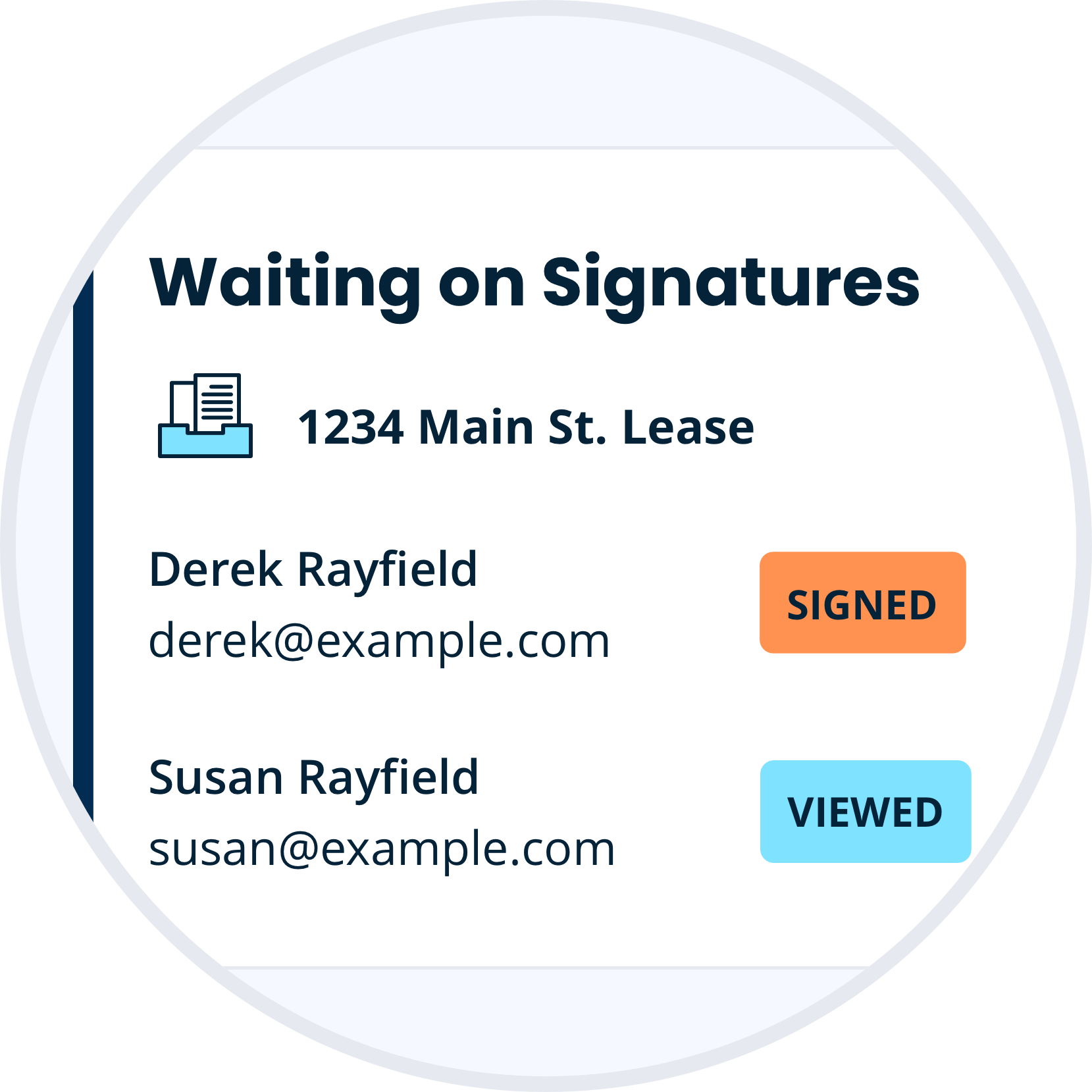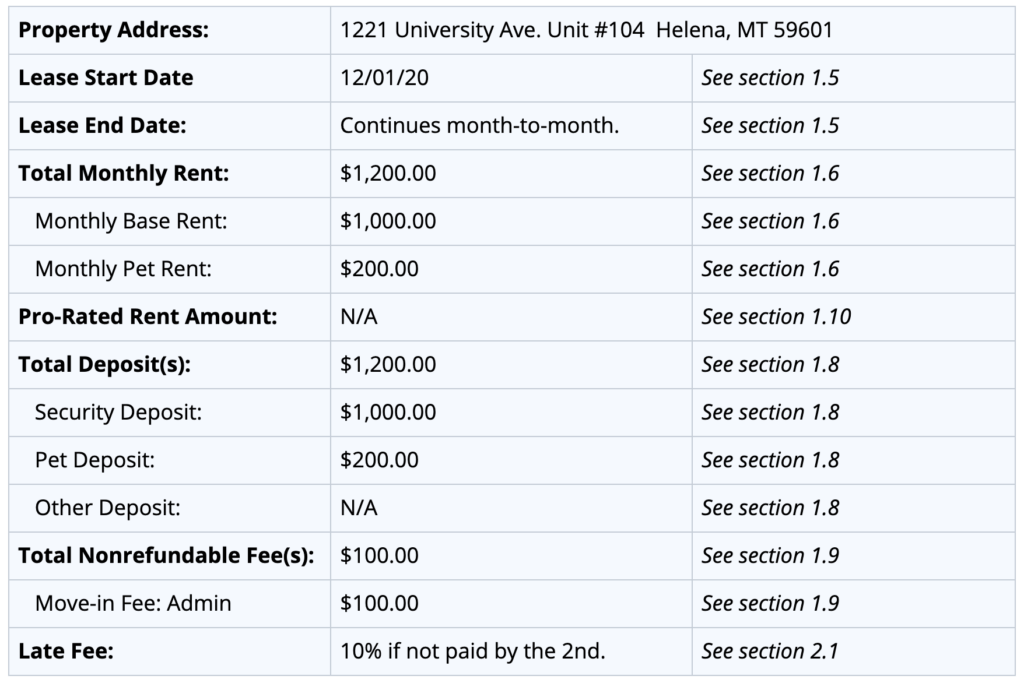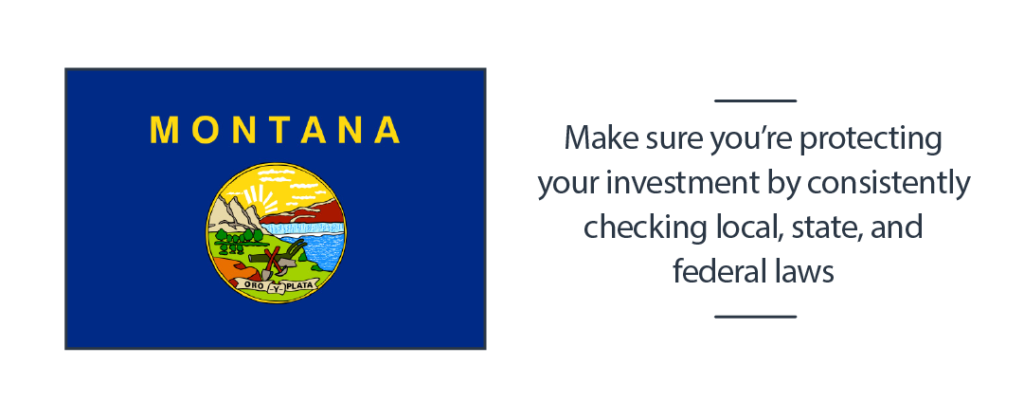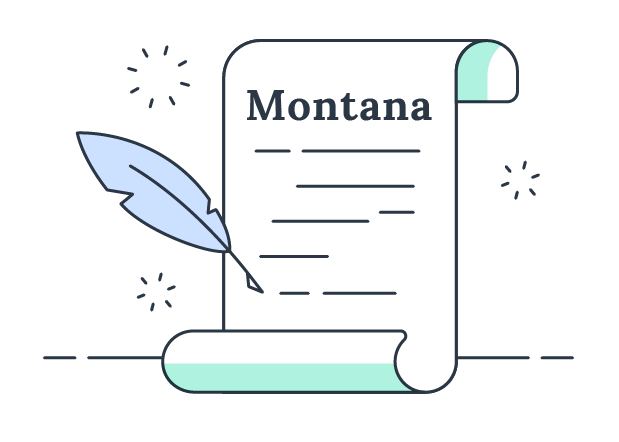Table of Contents
- Montana Renters’ Rights and Landlord Responsibilities
- Montana Landlords’ Rights and Tenant Responsibilities
- Rental Application Fees
- Criminal Background Check
- Security Deposit
- Late Rent
- Disclosures
- Montana Lease Agreement
- Montana Landlord-Tenant Law FAQ
- Due Diligence and Montana Rental Laws
- Montana Landlord-Tenant Law Resources
Known as “the Treasure State,” Montana continues to live up to this nickname by having exceptionally low property taxes and rich history. Since the COVID-19 pandemic, people have been escaping the big cities and moving to states like Montana where nature and beauty are endless. For all of these reasons, Montana is a great state to invest in real estate.

Laws that impact the rental market, landlords, and tenants are constantly being decided in states. Make sure you know what’s on your ballot – find Montana voting information.

Montana Renters’ Rights and Landlord Responsibilities
- No limits on what a landlord may charge for a security deposit
- Give 15 days notice before raising rent
- Must give 24 hours notice before entering
- Has three days to make emergency repairs
When it comes to Montana rental laws, there are a few specifics landlords need to know:
- Security Deposits – Montana has no statutes in place limiting what a landlord may charge for a security deposit. However, landlords must return the deposit within 30 days of the tenant moving out.
- Raising Rent – There is no limit to what a landlord may charge for rent. However, they may only raise the rent after a lease ends or the tenant agrees. For month-to-month leases, landlords must give a 15-day notice before increasing rent.
- Notice of Entry – Landlords must give their tenants a minimum of 24 hours’ notice before entering the unit.
- Repairs – Landlords must make essential repairs within three days of receiving written notice from the tenant. If it is a non-essential repair, the landlord may take up to 14 days to make the repairs.
Montana Landlords’ Rights and Tenant Responsibilities
- Montana does not specify a limit for late fees
- Tenants must keep the property in safe and habitable conditions
- Tenants have ten days to claim abandoned property
- Landlords may not deny your application if you are a victim of domestic violence
- Late Fees – Landlords are allowed to charge whatever they deem necessary and reasonable if a tenant is late paying their rent. There is a limit of $30 for a bounced check fee.
- Tenant Responsibilities – Tenants are required to remove all garbage and keep fixtures clean. They must also make minor repairs around the property when necessary.
- Abandoned Property – If a tenant leaves behind personal property after moving out, the landlord must store the items and send a written notice to the tenant giving them 10 days to claim the property. After this time, the landlord may then dispose of the property however they see fit.
- Special Protections – Landlords may not deny housing to victims of domestic violence. A victim may also break their lease with an order from a judge.
Rental Application Fees
No additional laws.
Criminal Background Check
- HUD (Federal) laws do not classify criminal backgrounds as a protected class, but making a decision to rent based off a criminal background alone could lead to a discrimination charge as it impacts certain protected groups of people disproportionately.
- However, if the criminal background check revealed a crime for the manufacture and distribution of drugs, homicide and/or stalking, denying the application is allowed.
- Landlords should have a consistent and equal policy or procedure in place to follow regarding criminal background checks so as not to discriminate against one class of people over another.
- HUD states that a landlord cannot ask about arrest records, only convictions, as innocent people are commonly arrested though the situation may not have resulted in a conviction.
- Some municipalities may have written their own laws expanding onto what you can and cannot ask regarding criminal backgrounds during the tenant screening process.
Security Deposit
Landlords must return security deposit funds within 30 days if there are damage deductions or within 10 days if there are no deductions.
Late Rent
There are no required grace periods or late fee caps, but any related policies must be stated in the lease.
Disclosures
- Mold Disclosures (for known mold on the premises)
- Methamphetamine Disclosure (if the landlord has knowledge of past meth production on the premises, and it has not been remediated by a certified contractor)
Build a Montana lease agreement in less than 15 minutes.
Montana Lease Agreement
There are three sections to a residential lease agreement. The first section outlines the custom details of the contract, such as who’s involved and for what address. Here’s an example Montana lease agreement listing details found in Section 1:
Montana Landlord-Tenant Law FAQ
Below are brief answers for some of the most commonly-asked questions regarding landlord-tenant law in Montana.
Can You Withhold Rent in Montana?
Yes, if a landlord fails to make necessary repairs, the tenant may pay for those repairs and deduct the price from their next rent payment.
How Long Does it Take to Evict a Tenant in Montana?
Evictions in Montana can take anywhere from three to eight weeks, depending on what the eviction is for.
Is Montana a Landlord-Friendly State?
Montana is a somewhat landlord-friendly state. There are no limits to late fees or what a landlord may charge for rent and a reasonably quick eviction process compared to other states.
What is the Eviction Process in Montana?
There are five reasons a landlord may evict their tenant in Montana. Failure to pay rent, violation of the lease, end of a lease term, safety violation, or illegal activity. Evictions for failure to pay rent, violation of the lease, or illegal activity, the landlord must provide a written notice giving them three days to fix their violation. A safety violation requires written notice and 14 days to amend the offense, and for a tenant staying past the end of their lease, it is a seven to 30-day notice depending on the lease term. Once the landlord files for eviction, the tenant must be served within five days, then the tenant has ten days to file a response.
Due Diligence and Montana Rental Laws
TurboTenant has utilized many municipal sources along with official state statutes in order to compile this information to the best of our ability. However, local laws are always in flux and landlords and tenants alike should be sure to do their due diligence and consult legal help when it’s needed. We hope the following list can serve as a valuable resource and allow you to succeed as a landlord or tenant in Montana. Be sure to take proper precautions when it comes to finding the top candidates for your unit by utilizing our online rental application and tenant screening services.
Disclaimer: TurboTenant, Inc does not provide legal advice. This material has been prepared for informational purposes only. All users are advised to check all applicable local, state, and federal laws and consult legal counsel should questions arise.

Unlimited Everything.
Create a single Montana lease agreement, or subscribe and receive unlimited lease agreements, landlord forms pack, and e-signs for a simple annual fee. Be confident with all the legal forms and tools you need as a professional landlord.
Discover Our Unlimited PlanMontana Landlord-Tenant Law Resources
- Montana State Landlord-Tenant Law
- Montana State Security Deposit Law
- Montana Dept. of Justice Landlord-Tenant Information
- Montana Judicial Branch Landlord-Tenant Forms
State Fair Housing Resources
- State of Montana Human Rights Bureau
- Montana Fair Housing
- HUD in Montana
- Tenant Rights, Laws, and Protections: Montana
Montana State Resources
- Montana Code Annotated (MCA)
- Administrative Rules of Montana (ARM)
- Montana Legal Services
- Montana Cadastral (Property Ownership Public Records)
Montana Real Estate Associations
City-Specific Housing Resources
Missoula
Bozeman
Billings
- City of Billings – Fair Housing Information
- City of Billings – Fair Housing Assistance
- Billings Housing Authority – HomeFront
- Billings Association of REALTORS®
Helena
Great Falls
- City of Great Falls – Fair Housing Information
- City of Great Falls – Landlord-Tenant FAQ’s
- Great Falls Housing Authority
- Great Falls Association of REALTORS®
Butte
Kalispell
Federal Fair Housing Resources






